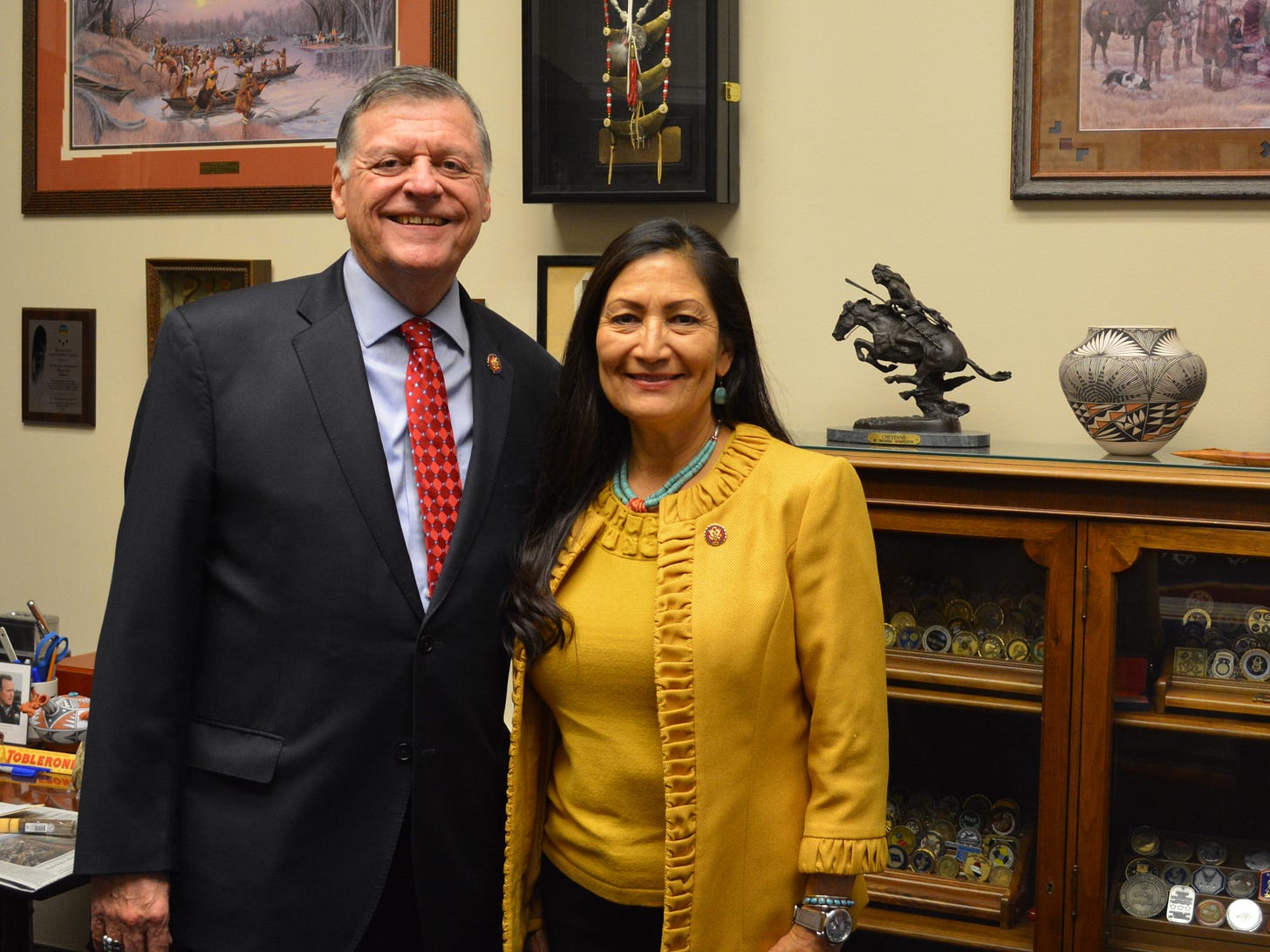U.S. Rep. Tom Cole, Chickasaw, on being perceived as an old White guy
Part two of our exclusive interview with the soon-to-be longest serving Indigenous congressman.

WASHINGTON – Yesterday, U.S. Rep. Tom Cole, of Oklahoma, shared a bit with you about his ideas for streng…
Keep reading with a 7-day free trial
Subscribe to Indigenous Wire to keep reading this post and get 7 days of free access to the full post archives.

